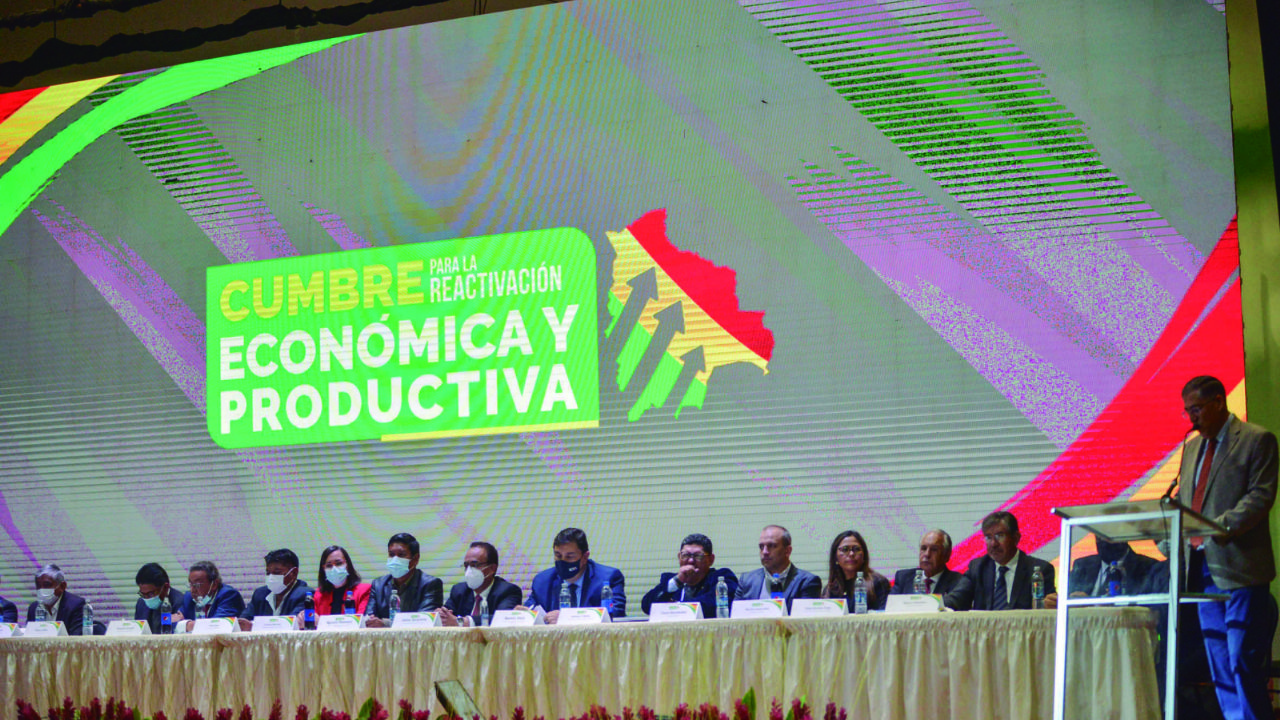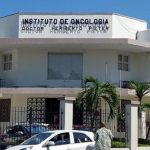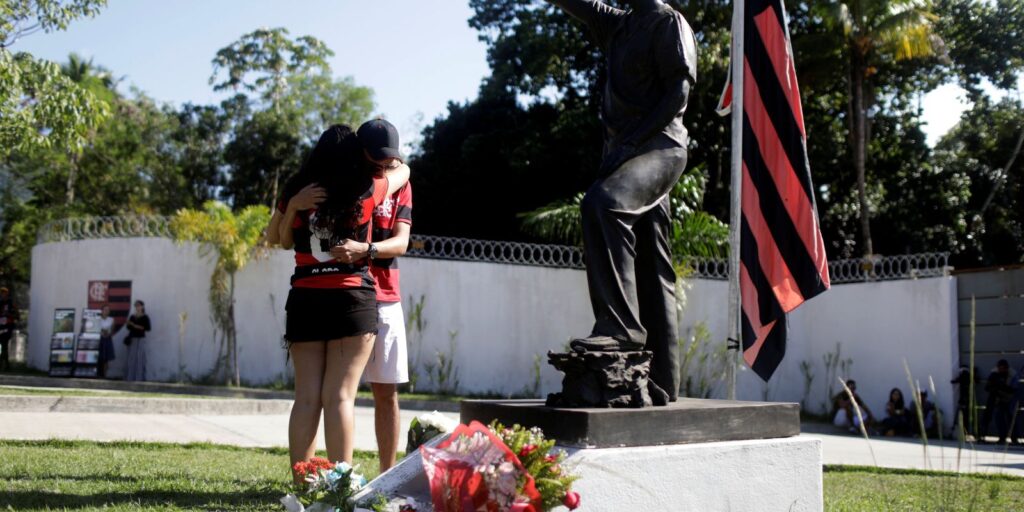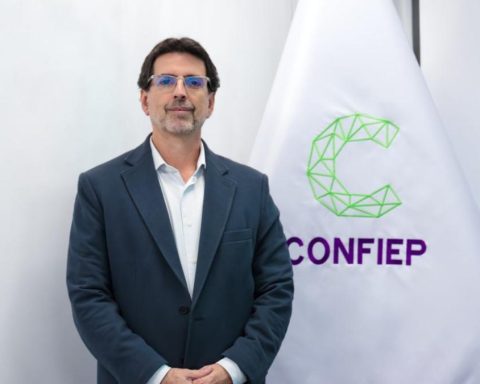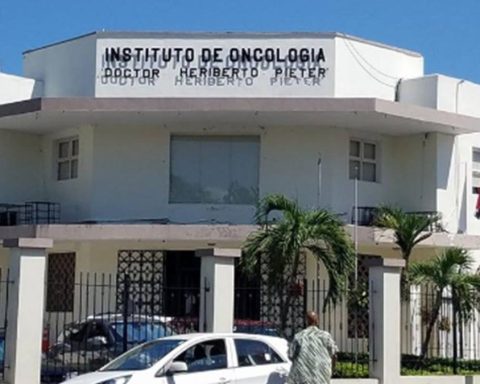Marco Belmonte / La Paz
Smuggling is the main problem identified by all the businessmen who attended the Summit for Economic and Productive Reactivation and in this sense they proposed a frontal fight against illicit activity, in addition to eight other proposals.
The event was organized by the National Chamber of Industries (CNI), National Chamber of Commerce (CNC) and was attended by more than 1,000 productive actors, representatives of 155 business associations and authorities from all over the country.
At the meeting, the different unions agreed that smuggling is a central problem and that is why one of the pillars for productive reactivation involves an effective fight against this crime because it is directly related to informality.
This illicit activity is in turn related to difficulties in accessing financing, the impossibility of expanding production capacity, and the deterioration of working conditions.
According to the president of the National Confederation of Small and Medium Enterprises (Conamype), Agustín Mamani, smuggling is a tumor that grows every day. “We see with concern how contraband enters freely across the borders, it is easy to see when we go to the fair that used products gain space and productive units are closed, sources of employment are no longer generated and people go to Chile, Argentina and Spain”, he specified.
During the meeting, the businessmen raised the need to modify the current regulations so that the crime of smuggling is typified from the entry of illegal merchandise worth 10,000 UFV, instead of 200,000 UFV, as it is today.
Other proposals
The summit also raised other demands such as 1) the need to formalize the productive sector through a policy of simplification and facilitation of the state bureaucracy and the reduction of barriers and pressures on producers and entrepreneurs.
2) Entrepreneurs consider that regulation should be fair and easy to comply with. In this area, they affirm that it is necessary to modernize the tax, labor and commercial regulations that govern the productive sector.
3) Entrepreneurs demand that access to credit be deepened and modernized, without affecting the sustainability of the financial circuit, using new technologies.
4) Entrepreneurs affirm that productive development is only possible with public-private alliances, which means that investment regulations, public companies and conciliations must be adjusted.
5) For the private sector, the development of markets must integrate producers from all departments of the country. The development of the national market must begin by first integrating local markets, with the final perspective of exporting surpluses.
6) The new forms of production must be under a sustainable and sustainable development framework, which must also bring new market and financing opportunities.
7) Digitization, innovation and gender policies are transversal. All public policies must be approached from the perspective of innovative development, with equal opportunities.
8) Import substitution requires, in principle, a change in the energy matrix to make room for other products. The import of hydrocarbons represents 25% of the country’s imports.
The final message of the summit, according to businessmen, is that investment in the productive sector must be the main objective to be pursued in the future.
Food production
Given the possible shortage of food in the country, due to the increase in international prices of grains, mainly wheat and corn, Anapo raised the “urgent” need for a productive pact, the approval of the use of biotechnology and the frontal fight against smuggling.
According to data from Anapo, the internal demand for wheat is around 700,000 tons per year, which is covered by some 300,000 tons produced within the national country (73%, in Santa Cruz), while the remaining 400,000 arrive by road. legal importation and smuggling (mainly wheat flour).
They admit that regulations do not allow clans to be imprisoned
Why are there no smuggler clans in jail? is the question that was put to the Vice Minister of Fight Against Smuggling, Daniel Pedro Vargas, who admitted that it is a problem of current legal regulations.
For smuggling to be classified as a crime, the merchandise introduced must exceed a value of 200,000 UFV, when before the Customs Law specified 10,000 UFV. “The regulations are not subject to sanction or arrest smugglers who bring these goods. The regulation of 200,000 UFV allows the entry of five trucks and below that value the fact is only sanctioned as a violation, ”he specified. The authority assured that once the norm is modified, it will be possible to have more people in jail.
He added that the adjustment to the legislation has already been proposed to the Legislative Assembly.
During yesterday’s Business Summit, microentrepreneur Emilio Gutiérrez questioned Vargas why used clothing is allowed to enter.
The authority stated that controls exist, but did not rule out possible “acts of corruption.” “There are more than 20 officers who are tried in the military and ordinary courts, how smuggling enters, it enters via the corruption of some public officials. In the Armed Forces we are inflexible, it will be presented how many were sanctioned, ”he specified. The authority promised to channel all the demands of the private sector and improve the fight against smuggling. Last year, the number of troops against illicit activity was increased by 174%.
